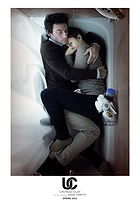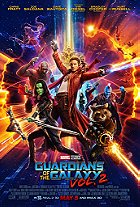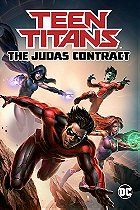The core of Hello, Dolly! is a warhorse of a show that is structured in such a way that it always works. Yes, it even works in this bullheaded adaptation which plays every single detail for the back of the house. It’s almost aggressive in its demands for maximum entertainment, as if it were trying to justify its bloated $25 million budget (bloated for 1968, that’s chump change nowadays) by conflating expense with enjoyment.
Hello, Dolly! was a colossal turkey back in the day, yet still somehow managed to snag a series of Oscar nominations (and wins), but its merits are better than its reputation would suggest. This thing was such a massive failure that it made Cleopatra look like a money-printing machine. Yet for all of its mugging and bug-eyed overacting there’s still something resolutely charming about it.
Walter Matthau isn’t the first choice I would think of for a song-and-dance routine, but his surliness and curmudgeonly persona wrap around Horace Vandergelder quite nicely. His voice is nothing to write home about, but it’s a character voice that works for the role and it all somehow manages to work out. Then there’s the Jerry Herman song score that is filled with out-and-out masterpieces like “Before the Parade Passes By,” “Hello, Dolly!,” “Put On Your Sunday Clothes,” and “It Only Takes a Moment.” And a few moments manage to strike the right tone and build up to a pleasing conclusion, namely the title song’s big spectacle in the Harmonia Gardens restaurant.
Yet the film’s greatest weapon and strongest asset is Barbra Streisand’s leading turn. She’s far too young, and in this sense is completely miscast, but brings a rapid-fire line delivery that makes her yenta character a scheming charmer. Not only that, but she delivers her songs with every shade and texture she can give. “So Long Dearie” begins with a hilarious series of vocal runs that would make even Mariah Carey blush before transforming into one hilarious kiss-off. Streisand dominates, keeps everything flowing, and is positively radiant here despite being about 15-30 years too young for the role.
Then there’s everything else about this behemoth that hampers the enjoyment. This isn’t a musical that’s been expanded for the screen, they exploded it with all of the delicacy of an atomic bomb. The supporting players emerge as more annoyances and mugging cartoonish characters than as memorable personalities, the choreography is routinely limp, and the entire thing feels like flailing of the Hollywood epic in panic. It’s busy throughout when it needs to moderate its tone between laughs, romance, and musical spectacle. It’s fascinating to watch as a camp artifact and for Streisand’s indomitable star power.
 Login
Login
 Home
Home 95 Lists
95 Lists 1531 Reviews
1531 Reviews Collections
Collections
 0 comments,
0 comments, 







